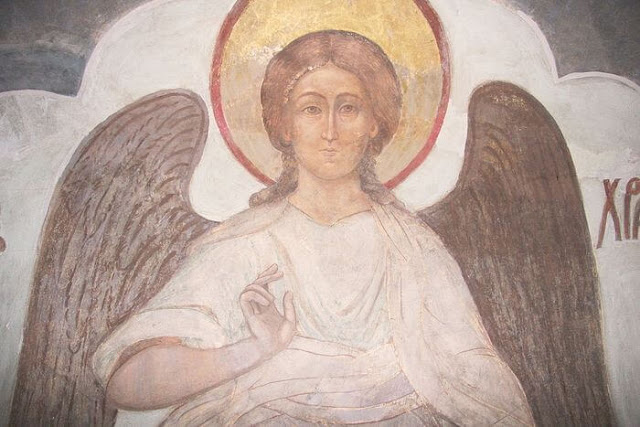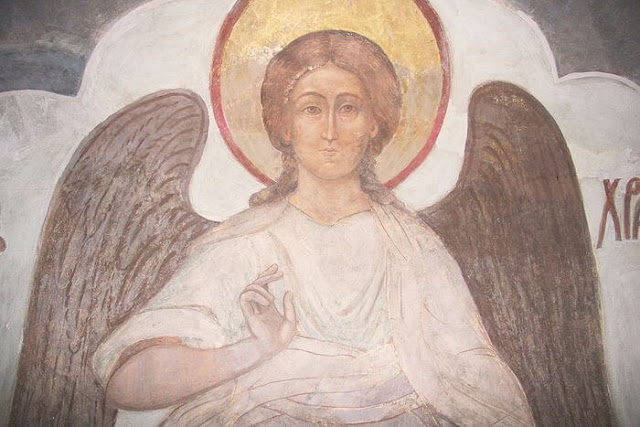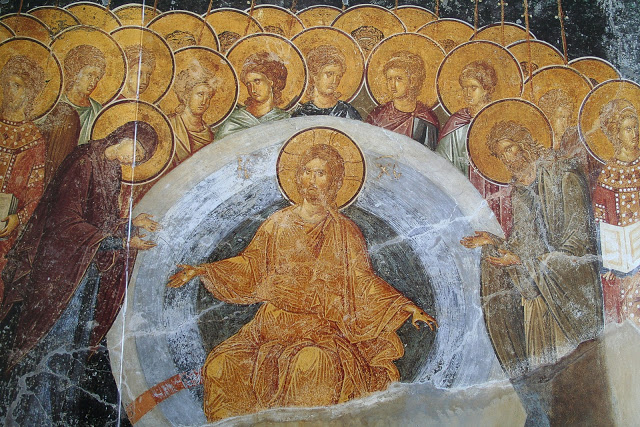
Let us begin with one story as an example. St. Simeon the Stylite was the first ascetic who began practicing this kind of asceticism, that is, he built a pillar and settled on its peak. In order to better understand what the pillar looked like, imagine a tall church bell tower with a narrow staircase. The entrance to the staircase would be blocked off by a wall, which would lock the person who entered inside. At the top of the tower there was no roof, and thus the ascetic would be between heaven and earth. In the winter he would be covered with snow, and in the summer burned by the sun. When Saint Simeon climbed the pillar, the other ascetics and fathers were surprised and exclaimed that they have never seen anything like it. They began to ask themselves: Are the actions of Saint Simeon the Stylite from God or not?
As a result, they decided to test his intentions directly: they went to the pillar and began shouting, scolding and humiliating him to force him leave his place, saying that his intentions are questionable, and he should not be inventing such methods of asceticism. If he listens to them and comes down without any anger, then it means that he is a man of God, because such an action will demonstrate true humility. If, on the other hand, he turns to anger or scolds them, then he is mistaken in his actions. And that is exactly what happened. As soon as Saint Simeon heard the voices of the fathers, he immediately came down, bowed down to them, asked for forgiveness and admitted that he was wrong to do what he did. This in turn embarrassed those who came to test him. After that, the fathers told him to continue his feat, with many others following his example.
A selfish person lives in deception, because he listens to himself and no one else. A person who his mistaken can not be critical of himself, and will always find an excuse. Because there is no humility in him, the Holy Spirit can not live within him. For example, if you say to him: “Instead of love you have hatred,” then he will answer to you: “Yes, I hate, because my brother hates me, and it is his fault.” That is, if he begins to justify everything in his favor, then there will be no Divine Grace within him.
Article from “Paraklisi” (№ 93, 2017)
Translated by The Catalog of Good Deeds




